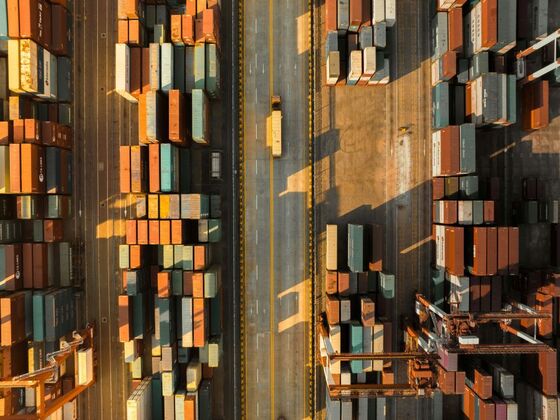Government oversight is fundamental to the journey of gemstones from mines to international markets. The government’s role in gemstone export and trade regulation shapes the industry’s integrity, transparency, and overall value. By establishing export permits, enforcing compliance, and intervening with policy changes, governments ensure that gemstone markets remain ethical and profitable.
Government Regulation of Gemstone Export
Governments regulate gemstone export through export permits, licensing, and customs requirements. For example, in the UK, you can export jewels, gold, and precious metals without a license or certificate—except for uncut (rough) diamonds, which require a Kimberley Process (KP) certificate. The KP Certification Scheme is a global framework designed to prevent the sale of conflict diamonds and mandates that an original KP certificate accompany all rough diamond exports. Export bans also apply to certain countries, such as North Korea and Syria, reflecting international trade restrictions and compliance requirements.
Colored gemstones, unlike diamonds, often face less formalised export controls. However, many countries are moving toward stricter regulation to address governance gaps and improve sector transparency.
Governance in Colored Gemstone Trade
Regulating colored gemstones presents unique challenges. The coloured gemstone sector is decentralised, with many small-scale operators and limited oversight compared to the diamond sector. National authorities and ministries issue permits, monitor exports, and set minimum capital requirements for trading companies. For instance, Vietnam requires enterprises to have a minimum prescribed capital and detailed documentation, including permits, trading contracts, and assessment papers, for gem import-export activities. Enterprises must maintain an inevitable turnover to retain their permits, ensuring only serious operators participate in the trade.
Recent Policy Interventions and Export Bans
Governments sometimes intervene with export bans or freezes to reform the sector and increase transparency. Malawi, for example, recently froze all gemstone and precious mineral exports and stopped issuing new export licenses. This move aims to audit contracts, improve efficiency, and address unpaid taxes and royalties. The ban is part of broader efforts to sanitise the mining sector and maximise national benefit from mineral resources.
International Trade Restrictions and Compliance
International sanctions and trade restrictions play a significant role in the export of gemstones. Countries must comply with international agreements, such as the Kimberley Process for diamonds, and adhere to the import rules of the destination country. Failure to comply can result in seized shipments or loss of market access. Export bans to countries under international sanctions, such as North Korea and Syria, are strictly enforced.
Ensuring Transparency and Value Addition
Transparency in the gemstone trade is essential for sector growth and public benefit. Governments are increasingly focusing on traceability, contract disclosure, and the collection of royalties and taxes. Weak governance or poor traceability mechanisms can limit accountability and allow smuggling or tax evasion, ultimately reducing the sector’s contribution to national income.
Challenges in Government Oversight
Despite regulations, enforcement gaps persist. Smuggling and informal trade remain significant challenges, especially in the colored gemstone sector. Balancing the interests of large-scale exporters and artisanal miners is complex, as is managing both value addition (such as local cutting and polishing) and export efficiency.
Summary and Key Takeaways
Governments play a crucial role in regulating the export and trade of gemstones. Through export permits, compliance with international frameworks, and policy interventions, they shape the integrity and profitability of the gemstone sector. Ongoing reform and transparency are essential to ensure ethical, sustainable, and profitable gemstone markets.
Frequently Asked Questions (FAQ)
Export permits ensure compliance with national laws, prevent smuggling, and facilitate the collection of taxes and royalties.
The Kimberley Process is an international certification scheme that prevents conflict diamonds from entering the global market, protecting both consumers and producing countries.
Export bans can disrupt local economies and livelihoods but are sometimes necessary to reform the sector, improve transparency, and ensure fair revenue distribution.
Ready to Start Your Gemstone Journey?
Don’t wait to discover the world of gemstones! Explore these essential reads right away.
Fascinated by this article and want to deepen your gemstone expertise? Dive into our comprehensive Gemstone Encyclopedia. Here, you’ll discover detailed information about hundreds of precious and semi-precious stones, including their properties and values.
For those interested in the rich cultural significance and fascinating stories behind these treasures, our History section offers captivating insights into how gemstones have shaped civilisations. Or perhaps you’d like to learn more about birthstones?
And if you’re considering gemstones as more than just beautiful adornments, visit our Precious Metal Investing guide. Here you will learn how these natural wonders can become valuable additions to your investment portfolio.






![Pigment analysis of Raphael's masterpiece[7][8] reveals the usual pigments of the renaissance period such as malachite mixed with orpiment in the green drapery on top of the painting, natural ultramarine mixed with lead white in the blue robe of Madonna and a mixture of lead-tin-yellow, vermilion and lead white in the yellow sleeve of St Barbara.](https://gemstonesinsider.com/wp-content/uploads/2025/09/Raphael-Madonna_Sistine_sm-560x420.jpg)



